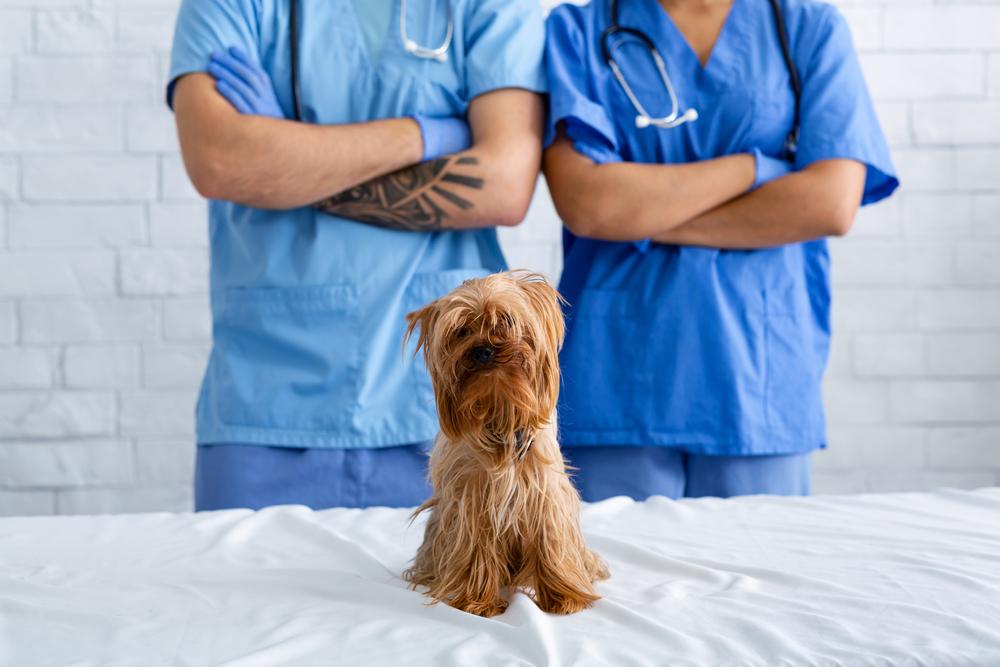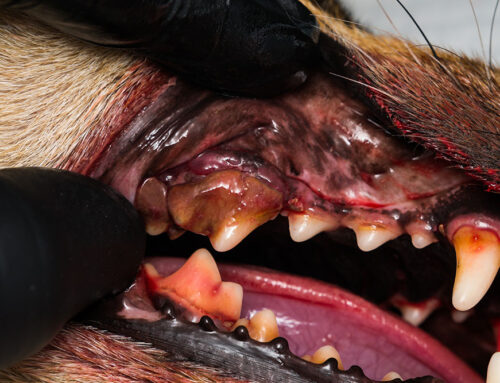When you bring your pet to North Bay Veterinary Dentistry in Petaluma, California, you’re entrusting them to a highly skilled team. Among these professionals, registered veterinary technicians (RVTs) play a pivotal role. Their duties often go unseen by pet owners, but their contributions are critical to your pet’s health. In this article, we’ll explore what a registered veterinary technician does and how they contribute to your pet’s well-being, especially when it comes to dental care.
What is a Registered/Certified Veterinary Technician?
A registered veterinary technician (RVT), also referred to as a certified or licensed veterinary technician depending on the state in which they are licensed, is a trained professional who support veterinarians in caring for animals. RVTs are similar to nurses in human healthcare. They complete formal education, pass the Veterinary Technician National Exam (VTNE), and are licensed by the state to perform a range of important tasks in veterinary medicine.
At North Bay Veterinary Dentistry, our RVTs specialize in dental care each having 10+ years in specialty dentistry medicine, assisting with procedures ranging from routine cleanings to more complex oral surgeries.
Key Responsibilities of Veterinary Technicians
Veterinary technicians are involved in almost every aspect of patient care at North Bay Veterinary Dentistry. Here’s a breakdown of their key responsibilities:
1. Dental Cleanings and Radiography
Veterinary technicians play a vital role in maintaining your pet’s dental health. They perform thorough dental cleanings, which involve scaling to remove plaque and tartar, as well as polishing to smooth the tooth surface. Additionally, RVTs assist with dental radiography (X-rays), a crucial diagnostic tool for identifying problems that can’t be seen during an oral exam, such as infections or fractures beneath the gum line. These hidden ailments could be causing your pet pain, so it’s vitally important to be able to identify those issues with high quality X-rays.
2. Assisting with Oral Surgeries
In oral surgeries, veterinary technicians are indispensable. They help prepare the surgical area, sterilize instruments, and assist the veterinarian during the procedure. Whether it’s extracting a damaged tooth or treating periodontal disease, RVTs ensure surgeries run smoothly by closely monitoring and maintaining the patient’s vital signs, such as heart rate and oxygen levels, throughout the procedure.
3. Administering Anesthesia
Comprehensive veterinary dental procedures require anesthesia, and RVTs are responsible for its safe administration. They carefully calculate the dosage based on the pet’s weight, health status and veterinarian guidance, ensuring your pet remains comfortable and pain-free during the procedure. Throughout the process, they continuously monitor the anesthesia levels and make adjustments as needed to ensure a safe experience.
To learn more about how anesthesia is used during dental procedures, visit our anesthesia page.
4. Postoperative Care and Recovery
Once the dental procedure is complete, the veterinary technician takes over the postoperative care. This includes monitoring the pet as they wake up from anesthesia, ensuring their vital signs remain stable, and providing any necessary pain management. RVTs are also responsible for guiding pet owners on post-surgical home care, offering clear instructions on how to manage their pet’s recovery.
Veterinary Technicians and Client Communication
Veterinary technicians are not only hands-on with pets but also play a critical role in educating pet owners. At North Bay Veterinary Dentistry, RVTs often discuss the importance of dental hygiene with clients, including how to brush a pet’s teeth at home and the significance of regular check-ups. Their approachable demeanor makes them a valuable resource for answering questions and providing clarity about your pet’s dental health and treatment plans.
Why Veterinary Technicians are Essential to Pet Dental Care
Veterinary technicians are an indispensable part of the veterinary healthcare team. They handle essential tasks that allow veterinarians to focus on diagnosing and treating pets. Without RVTs, the clinic could not function efficiently.
Veterinary technicians are also trained to recognize subtle changes in a pet’s condition, such as abnormal behavior or discomfort, which might indicate a problem requiring veterinary attention. Their keen observation skills contribute to catching issues early and improving treatment outcomes.
At North Bay Veterinary Dentistry, RVTs help ensure that every dental procedure goes smoothly and that patients are cared for at every step of the process. Their specialized training in dental techniques, anesthesia, and postoperative care allows them to provide comprehensive, safe, and effective care to all patients.
The Path to Becoming a Veterinary Technician
Becoming a veterinary technician requires both education and commitment. Here’s how RVTs are trained:
- Veterinary Technology Program: RVTs must complete a two- or four-year veterinary technology program accredited by the American Veterinary Medical Association (AVMA). This education covers topics like animal anatomy, pharmacology, dentistry, and anesthesia.
- Passing the VTNE: After completing their education, aspiring veterinary technicians must pass the Veterinary Technician National Exam (VTNE), a comprehensive test covering all aspects of veterinary care.
- State Licensure: RVTs must meet their state’s specific requirements for licensure and continue their education throughout their careers to stay updated on the latest advancements in veterinary medicine.
Veterinary Technicians vs. Veterinary Assistants
It’s important to understand the difference between veterinary technicians and veterinary assistants. While both roles are essential in a clinic, their training and responsibilities differ.
- Veterinary Technicians: Licensed professionals who have completed formal education and passed the VTNE. They can administer anesthesia, perform dental cleanings, assist in surgeries, and manage patient care.
- Veterinary Assistants: Veterinary assistants provide support by restraining animals, preparing equipment, and helping with basic tasks around the clinic. They do not require formal certification or licensure.
Recognizing the Vital Work of Veterinary Technicians at North Bay Veterinary Dentistry
Veterinary technicians are the backbone of any veterinary practice, and at North Bay Veterinary Dentistry, they are crucial to ensuring the highest quality of dental care. Next time you visit our clinic, please take a moment to appreciate the veterinary technicians who work tirelessly behind the scenes to support your pet’s dental health.






Leave A Comment